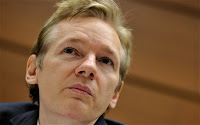 Politics in UP rife with corruption: Wiki
Politics in UP rife with corruption: WikiLUCKNOW: Uttar Pradesh's reputation of being a state steeped in corruption has preceded it all the way to the US shores. Following a discussion on national elections in Lucknow in 2009, US Charge d'Affaires Peter Burleigh, in a May 2009 cable to the US, concluded that politics in UP remains rife with corruption and without long-term vision for any party beyond the shackles of caste identity.
On the basis of information garnered through contacts, the embassy, in March 2009, wrote a cable to the US government about the systems at work. It said: "Mayawati's BSP seems to have put a serious effort into the campaign thus far. Her main rival, the SP, remains locked in acrimonious seat-sharing talks with the Congress Party. According to journalists, the BSP operates the most extensive grass roots network in UP. Campaign funds will not be a problem. Mayawati basically "sells" the right to contest a district for the party. Journalists estimated the minimum cost at roughly half a million dollars. If a higher bidder enters the market after a seat has been sold, Mayawati - in a high-minded act of "fairness" - requires the higher bidder to repay the original bidder, and then collects the higher bid. She thus sells the same seat twice, or more. Near unlimited funding for the grass roots network, combined with her cult of personality and complete control of the state government, make the BSP competitive for all eighty Lok Sabha seats."
Mayawati's perception as a "corrupt'' and "unpredicatable'' chief of state, however, extended well beyond her ability to handle seat allocation. Alluding, also, to how she managed intra-party relations, a US confidential diplomatic cable said: "Mayawati's previous tenure as CM came to an abrupt end in 2003, when her coalition partner, the Bharatiya Janata Party (BJP), accused her and her inner circle of accepting large kickbacks from contractors involved in the ill-conceived "Taj Corridor scheme." Mayawati tried to ram through the project without heeding environmental and other laws. The possibility of prosecution on corruption charges has hung over Mayawati's head like the sword of Damocles ever since 2003.''
The prosecution of Mayawati and her then irrigation minister Naseemuddin Siddiqui was stalled when former governor TV Rajeshwar did not "sanction'' efforts by the CBI to determine the duo's role in the Taj Corridor Case. The cable said: "Political insiders view the end of the Taj Corridor case as a quid pro quo requiring Mayawati to support Congress and the United Progressive Alliance (UPA) in New Delhi in exchange for her virtual amnesty from prosecution.'' Continuing on the same issue, the cable further said: "Now than Mayawati is on board, Congress will have a much easier time pushing forward its candidate (yet to be announced) for President. Congress should find BSP support in New Delhi very useful in other ways in the years ahead."
In a conference in March 2008, though Congress leaders Sonia and Rahul Gandhi attacked Mayawati for promoting corruption, lawlessness, caste-based politics, shielding criminals as well as for inflation, the April 2008 diplomatic cable quotes a senior Congress MP telling SCA Deputy Assistant Secretary Evan Feigenbaum, "Sonia has a soft spot for Mayawati''.
Quote unquote:
"Mayawati has been a mercurial figure in the past and has grown increasing megalomaniac as her power has expanded. Mayawati could easily become an autocrat who attempts to impose her will, fails to deliver on her promises of economic revival and creates a non-viable political party based on personality rather than ideas." ---- In a US Diplomatic Cable dispatched on 14 May, 2007.